Dallas’ High Five Interchange
Tuesday, 22nd March 2011 by Kyle Kusch
As the world's people continue to acquire automobiles at a precipitous rate, we must build increasingly complex intersections to deal with the resulting traffic. Few places epitomise this trend more than the intersection of the Interstate 635 and US 75 freeways in Dallas, Texas, where the massive, five-level High Five Interchange was completed in December 2005 at a cost of US$261 million.
The High Five sees up to 500,000 vehicles pass through it each day, and while traffic flow may be smooth, the interchange is one of the most impossibly complex highway junctions you will ever see. Just try and make sense of the jumbled spaghetti from above!
Switching to map view doesn’t clear things up very much; one can easily get lost in the maze of on-ramps, off-ramps, bridges, frontage roads, and U-turn routes.
The reason the interchange is called the “High Five” is that at its densest, it is literally five layers of road stacked on top of each other. It’s hard to capture something like this in Street View (usually because the view is blocked by another level of road), but we do manage to catch glimpses of the top four layers while viewing them from the fifth:
In total, the interchange contains 37 different bridges, the highest of which is 120 feet (37 metres) above ground.
The Dallas High Five may be the largest and most spectacular five-level interchange, but there are plenty of such stack interchanges around the world. The rival Texan city of Houston alone has five interchanges with five levels. The most ragged-looking five-level, though, must certainly be the Gravelly Hill Interchange on the M6 in Birmingham, England.1 Not only are there five levels of roadways, but there are two railways, two canals, and three rivers tangled up within. No wonder then that it's known as “Spaghetti Junction”…
-
Birmingham's Spaghetti Junction was featured in the Google Sightseeing Book, and back in 2005 we visited another Spaghetti Junction in Atlanta. ↩︎
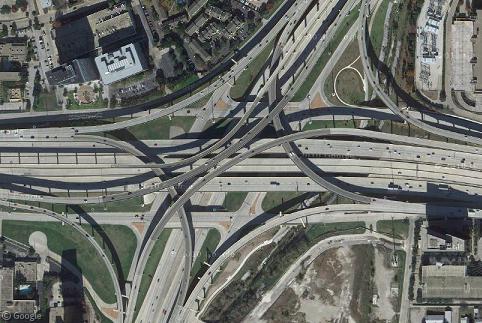
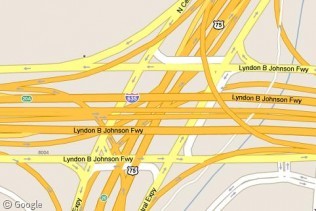
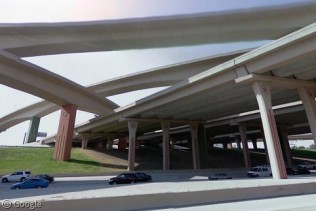
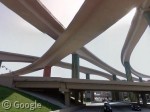
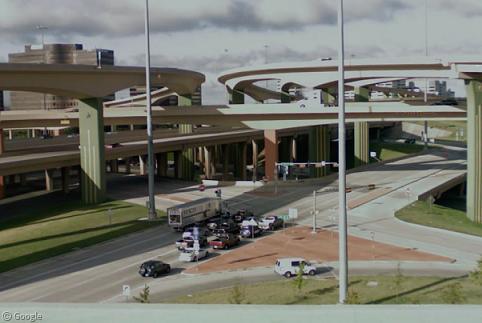
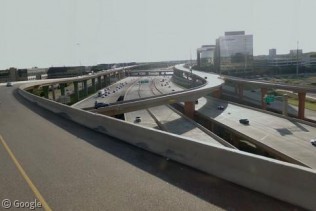
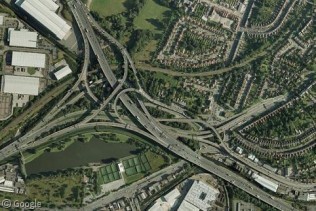
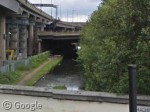
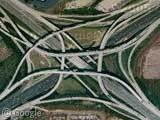
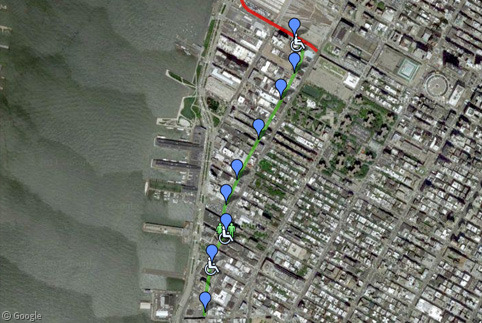
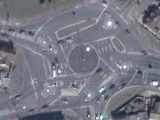
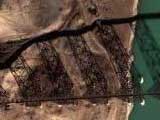
actually houston has at least 6 or 7 5 level interchanges. there are 5 5 layer interchanges alone on beltway 8. why the high five is so popular is beyond me. they are nothing new, dallas’ big brother has had them for years.